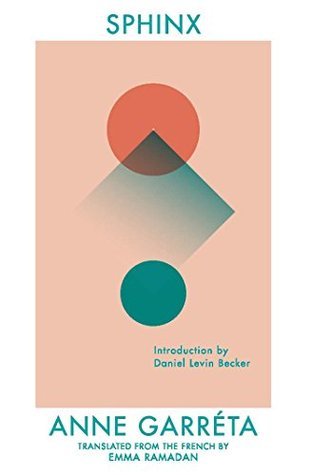What do you think?
Rate this book


Sphinx is the remarkable debut novel, originally published in 1986, by the incredibly talented and inventive French author Anne Garréta, one of the few female members of Oulipo, the influential and exclusive French experimental literary group whose mission is to create literature based on mathematical and linguistic restraints, and whose ranks include Georges Perec and Italo Calvino, among others.
A beautiful and complex love story between two characters, the narrator, "I," and their lover, A***, written without using any gender markers to refer to the main characters, Sphinx is a remarkable linguistic feat and paragon of experimental literature that has never been accomplished before or since in the strictly-gendered French language.
Sphinx is a landmark text in the feminist and LGBT literary canon appearing in English for the first time.
Anne Garréta (b. 1962) is a lecturer at the University of Rennes II and research professor of literature and Romance studies at Duke University. She joined the Oulipo in 2000, becoming the first member to join born after the Oulipo was founded. Garréta won France's prestigious Prix Médicis in 2002, awarded each year to an author whose "fame does not yet match their talent," for her novel Pas un jour.
Emma Ramadan is a graduate of Brown University and received her master's in literary translation from the American University of Paris. Her translation of Anne Parian's Monospace is forthcoming from La Presse. She is currently on a Fulbright Fellowship for literary translation in Morocco.
152 pages, Paperback
First published February 19, 1986
Remembering saddens me still, even years later. How many exactly, I don’t know anymore.Ten or maybe thirteen. And why do I always live only in memory? Soul heavy from too much knowing, body tired from feeling pensive and powerless at the same time, so riven by this obsessive ennui that nothing, or almost nothing, can distract it anymore. Back then, if I recall correctly, I used to describe the world as a theater where processions of corpses danced in a macabre ball of drives and desires. My contempt and ennui did not, however, keep me from observing how this dance dissolved into an amorous waltz. Languid nights at the whim of syncopated rhythms and fleeting pulses; the road to hell was lit with pale lanterns; the bottom of the abyss drew closer indefinitely; I moved through the smooth insides of a whirlwind and gazed at deformed images of ecstatic bodies in the slow, hoarse death rattle of tortured flesh.Sphinx is a novel featuring Oulipo-esque constraint.
the strange sensation of always feeling as if i were at the dreadful edge of some imminent break... this sentiment is the very foundation of all that is intractable in me: a sort of inebriation, bitter from drawn-out solitude, the inevitable tendency toward a final disenchantment with all idylls. and i can't explain why, or how. i've never expected much from those i love. i would have given all, conceded all, pardoned all the wandering of anyone who accorded me the space and time for my discreet tenderness. so much did i fear smothering those i cherished that i never made a fuss, which was doubtless the reason for my repeated falls and defeats. i carry my silence - this constant withdrawal into a suffering that i thought of perhaps mistakenly as immoderate and obscene - as a cross that has never promised any redemption, a calvary without deliverance, an involuntary sacrifice made in vain.